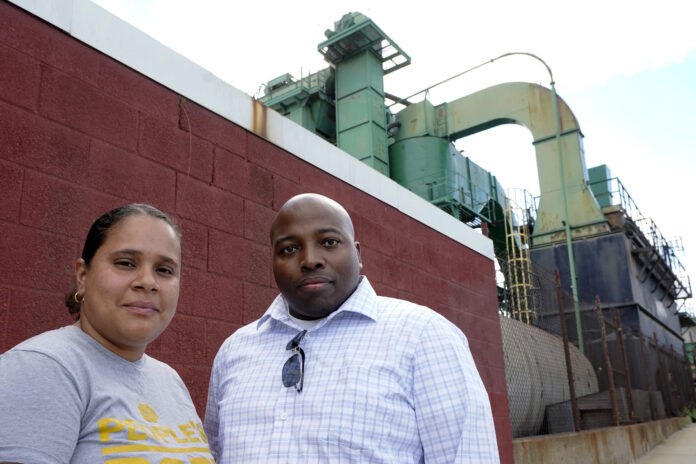
PROVIDENCE (AP) – The plastics industry says there is a way to help solve the crisis of plastic waste plaguing the planet’s oceans, beaches and lands — recycle it, chemically.
Chemical recycling typically uses heat or chemical solvents to break down plastics into liquid and gas to produce an oil-like mixture or basic chemicals. Industry leaders say that mixture can be made back into plastic pellets to make new products.
The goal is to create a circular economy for plastics, according to the American Chemistry Council, the industry trade association for American chemical companies.
Companies are planning to build large plastics recycling plants and seven smaller facilities across the United States already recycle plastic into new plastic, according to the ACC. A handful of others turn plastic into transportation fuels.
But environmental groups say advanced recycling is a distraction from real solutions like producing and using less plastic. They suspect the gloss of recycling will enable a continued steep ramp up in global plastics production. Recycling rates for plastic waste are abysmally low, especially in the United States.
Plastic packaging, multi-layered films, bags, polystyrene foam and other hard-to-recycle plastic products are piling up in landfills and in the environment, or going to incinerators.
Judith Enck, the founder and president of Beyond Plastics, says that plastics recycling does not work and never will. Chemical additives and colorants used to give plastic different properties mean that there are thousands of types, she said. That’s why they can’t be mixed all together and recycled in the conventional, mechanical way. Nor is there much of a market for recycled plastic, because virgin plastic is cheap, she said.
So what is more likely to happen than actual recycling, said Enck, a former regional administrator at the U.S. Environmental Protection Agency, is the industry will shift to burning plastics as waste or as fuel.
The industry has made roughly 11 billion metric tons of plastic since 1950, with half of that produced since 2006, according to industrial ecologist Roland Geyer. Global plastic production is expected to more than quadruple by 2050, according to the United Nations Environment Programme and GRID-Arendal in Norway.
The international Organisation for Economic Co-operation and Development says the share of plastic waste that is successfully recycled is projected to rise to 17% in 2060 from 9% in 2019 if no additional policies are enacted to restrain plastic demand and enhance recycling, but that wouldn’t begin to keep up with the projected growth in plastic waste. With more ambitious policies, the amount of plastic waste that is recycled could rise to 40% to 60%, according to OECD.
Alterra Energy in Akron, Ohio says it takes in the hard-to-recycle plastics, typically 40 tons to 50 tons per day, heating and liquifying the plastic to turn it back into an oil or hydrocarbon liquid, about 10,000 gallons to 12,000 gallons daily.
“Our mission is to solve plastic pollution,” said Jeremy DeBenedictis, company president. “That is not just a tag line.”
The process doesn’t involve oxygen so there’s no combustion or incineration of plastics, DeBenedictis said, and their product is trucked as a synthetic oil to petrochemical companies, essentially the “building blocks on a molecular level for new plastic production.”
The materials they take in, that haven’t been able to be recycled until now, should not be sent to landfills, dumped in the ocean or incinerated, DeBenedictis said.
“There is absolutely no way we can meet our climate goals without addressing plastic waste,” added company CEO Fred Schmuck.
The main chemical recycling technologies involve using the process of pyrolysis, gasification or depolymerization. Neil Tangri, the science and policy director at the Global Alliance for Incinerator Alternatives, is skeptical. Pyrolysis has been around for decades, it hasn’t solved the problem and production keeps climbing, he said.
GAIA also views chemical recycling as a false solution that will facilitate greater production of virgin plastic — a high-energy process with high carbon emissions that releases hazardous air pollutants, Tangri said.
“Nobody needs more plastic,” he said. “We keep trying to solve these production problems with recycling, when really we need to change how much we make and what we make.”
In Rhode Island, state lawmakers considered a bill this year to exempt such facilities from solid waste licensing requirements. It was vigorously opposed by environmental activists and residents near the port of Providence who feared it would lead to a new plant in their neighborhood.
Dwayne Keys said it’s unfair that he and his neighbors always have to be on guard for proposals like these, unlike residents in some of the state’s wealthy, white neighborhoods. The port area already has enough environmental hazards that residents deal with but don’t benefit economically from, he added. Keys calls it environmental racism.
“The assessment is, we’re the path of least resistance,” he said. “Not that there’s no resistance, but the least.”
Joshua Baca, vice president of the plastics division at the ACC, said the facilities operate at the highest standards, the industry believes everyone deserves clear air and water, and he would invite any detractors to one of the facilities so they can see that firsthand.
U.S. plastics producers have said they will recycle or recover all plastic packaging used in the United States by 2040, and have already announced more than $7 billion in investments in both mechanical and chemical recycling.
“I think we are on the cusp of a sustainability revolution where circularity will be the centerpiece of that,” Baca said. “And innovative technologies like advanced recycling will be what makes this possible.”
Kate O’Neill wrote the book on waste, called “Waste.” A professor at the University of California, Berkeley, she has thought a lot about whether chemical recycling should be part of the solution to the plastic crisis.
“With some of these big problems,” she said, “we can’t rule anything out.”











